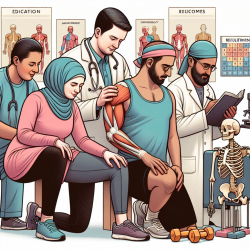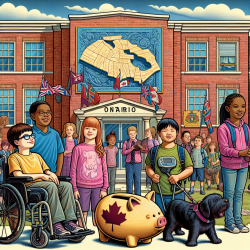Introduction
The COVID-19 pandemic has reshaped many aspects of healthcare delivery, including speech-language pathology services. As practitioners, we are constantly seeking ways to improve our practice and ensure the best outcomes for children. The recent research article, "Editorial: Reimagining Universal Health Coverage and other global health targets in the post-COVID-19 era," provides valuable insights that can be applied to enhance our practice.
Understanding Universal Health Coverage (UHC)
Universal Health Coverage (UHC) is a global health goal that ensures all individuals and communities have access to necessary healthcare services without financial hardship. This encompasses a wide range of services, including health promotion, prevention, treatment, rehabilitation, and palliative care. The research highlights that achieving UHC requires a multifaceted strategy, focusing on primary healthcare and life course approaches.
Implications for Speech-Language Pathology
For speech-language pathologists, the principles of UHC can be directly applied to our practice. Here are some key takeaways:
- Access to Services: Ensure that speech-language therapy is accessible to all children, regardless of their socioeconomic status. This may involve advocating for policy changes or collaborating with organizations like TinyEYE to provide online therapy services.
- Comprehensive Care: Embrace a holistic approach that includes prevention, early intervention, and rehabilitation. Tailor therapy plans to meet the individual needs of each child, considering their unique circumstances and preferences.
- Collaboration: Work closely with other healthcare professionals, educators, and families to provide integrated care. This aligns with the multidisciplinary approach advocated in the research, which emphasizes the importance of collaboration in achieving UHC goals.
Encouraging Further Research
The research article also underscores the importance of ongoing research to adapt to evolving healthcare needs. Speech-language pathologists can contribute to this effort by:
- Participating in Research: Engage in research projects that explore innovative therapy methods or evaluate the effectiveness of online therapy platforms like TinyEYE.
- Staying Informed: Keep abreast of the latest research findings and incorporate evidence-based practices into your therapy sessions.
- Advocating for Research Funding: Support initiatives that seek funding for research in speech-language pathology, particularly those that focus on underserved populations.
Conclusion
By integrating the insights from the research on UHC into our practice, we can enhance the quality of care we provide to children. This not only aligns with global health goals but also ensures that we are making data-driven decisions that lead to positive outcomes. As we continue to navigate the post-COVID-19 era, let us remain committed to improving our skills and advocating for equitable access to speech-language therapy services.
To read the original research paper, please follow this link: Editorial: Reimagining universal health coverage and other global health targets in the post-COVID-19 era.










